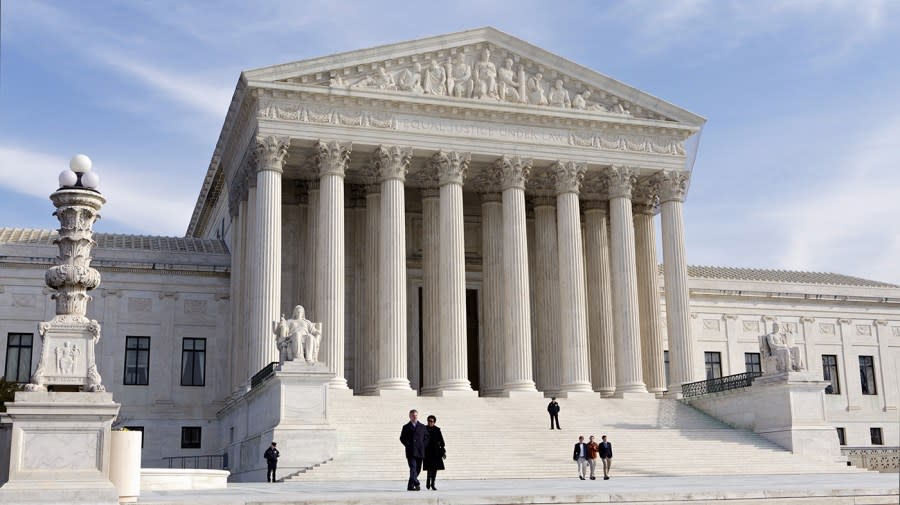Adult entertainment industry asks Supreme Court to block Texas age-verification law

- Oops!Something went wrong.Please try again later.
A trade group representing the adult film industry is asking the Supreme Court to pause a Texas law that requires adult sites to verify the ages of their users, claiming that it violates the sites’ First Amendment rights.
Friday’s filing requests the Supreme Court halt the law’s enforcement while justices consider whether to take on a full appeal of the legislation.
The state law requires that sites verify that users in Texas are at least 18 years old before accessing pornography, claiming the content is harmful. The Free Speech Coalition, the industry group, has argued that age-verification laws are “ineffective, unconstitutional and dangerous.”
The American Civil Liberties Union (ACLU) is also backing the suit, saying the Texas law would “improperly burden free speech online.”
“Though it purportedly seeks to limit minors’ access to online sexual content, the law in fact imposes significant burdens on adults’ access to constitutionally-protected expression, requiring them to provide personal identifying information online to access sensitive, intimate content,” ACLU attorney Vera Eidelman wrote in a statement.
A district court in September ruled that the law was unconstitutional, though that was overturned by an appeals court last month.
Texas Attorney General Ken Paxton (R) also sued pornography giant Aylo, which owns websites including Pornhub, in February for not following the law. The company disabled access to the Pornhub site in Texas after the appeals court overturned the lower court ruling.
The Supreme Court has been critical of attempts to limit access to adult materials in the past, including in a 1997 case over internet pornography. Plaintiffs argued in the new filing that the appellate decision goes directly against that precedent and should be paused while the high court considers a full appeal.
The appeals court relied on a 1968 precedent to justify the law instead of more recent cases regarding internet content, the ACLU argued.
“That repudiation of this Court’s precedent is both striking and unsound,” the plaintiffs wrote in the filing.
The court ordered that Texas respond to the demand for a pause by April 26.
At least eight other states — Kansas, Arkansas, Indiana, Louisiana, Mississippi, Montana, Utah and Virginia — have enacted age-verification laws since 2022 and lawmakers have introduced proposals in more than 20 other states, according to The Associated Press.
For the latest news, weather, sports, and streaming video, head to The Hill.

